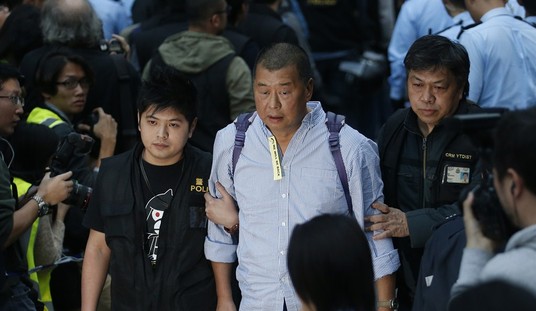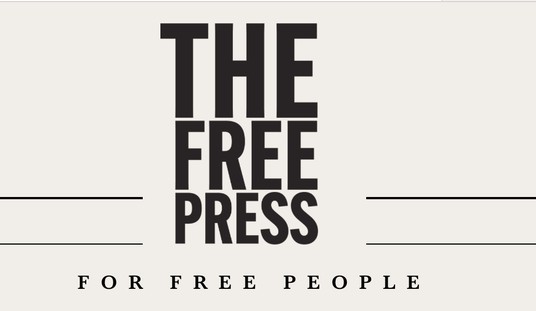Germany deserves a tremendous amount of credit for coming to grips with the insanity of its Nazi past, and the reality of the Holocaust that it conducted. They have preserved concentration camps such as Sachsenhausen to remind each other and the world of what happened to six million Jews in Germany and Europe, and to prevent it from ever happening again. It has not been a perfect process, as denial remains a small but potent problem, but the German people have done their best to acknowledge and atone, including their alliance with Israel and support for a Jewish homeland.
Now Germany needs to pass those lessons along to the wave of refugees and immigrants who have recently arrived in their country. So far, the Washington Post reports, it’s … not going well:
“Maybe the Jews want to keep these places going so they can be seen as victims forever,” he said of Sachsenhausen, which was mainly used for political prisoners but by the beginning of 1945 held 11,100 Jews.
Jamo’s response is not the usual reaction to Europe’s postwar conversion of concentration camps into memorials and museums, places of atonement and civic education that ask visitors never to forget the Nazi past.
But this was not a typical tour — nor was Jamo a typical visitor. This was an effort to sensitize Muslim migrants to the dark history of the country that today offers them asylum. Two years ago, Jamo, 38, fled to Germany from Kobane, a Syrian city occupied by Islamic State militants in late 2014. His ambivalent response to the suffering of Jews at Sachsenhausen speaks to centuries-old religious strife as well as to the political conflict that has torn the Middle East since Israel’s founding after World War II.
At the same time, the refugee’s views reflect the moral quandaries posed by mass migration for a nation rebuilt after the Holocaust on a set of bedrock principles that includes responsibility to the Jewish people.
That’s more than a little ironic, given the problem that Germany faces in this instance. The mass migration into Germany from Syria and Libya threatens the cultural consensus on anti-Semitism in a nation rebuilt after World War II. That consensus goes straight to the heart of Germany’s modern identity as a human-rights champion — which, even more ironically, is why Angela Merkel welcomed these refugees with open and uncritical arms.
In response to the obvious conflict, this sensitivity training may be a good idea, but it doesn’t appear to be working. Jamo’s response to this was to equate Sachsenhausen to “Israel’s aggression,” which is historically ignorant. In fact, another comment from Jamo suggests that the field trip may have backfired. “The Arabs think what Hitler did was a good thing, because he freed them from the Jews.” Another participant put the matter even more bluntly. “In some ways, we think of the Jews just like the Nazis did.” Both men softened those positions by the end of the process, but not by much. “We are definitely still against the Zionists,” Jamo declared.
Perhaps more progress can be made as refugees assimilate into German culture — assuming that the Germans insist that they do. It still serves as a reminder that while nations need to respond to acute humanitarian disasters with aid and support, opening countries to a massive flood of people with very different cultural values will seriously the culture of the host nations too, even challenging their most cherished core values. The nations of Europe and the refugees themselves might have done better to insist that Arab nations (other than Jordan) open their doors to the flood while providing financial support.
Update: I copied one quote twice rather than get the other quote I wanted. It’s been fixed now.







Join the conversation as a VIP Member